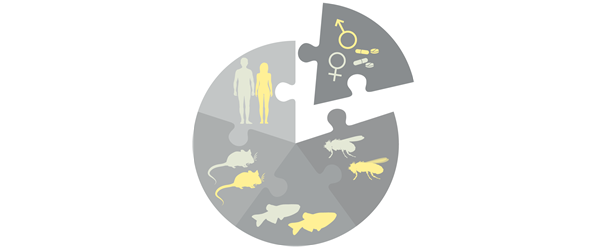Neuroblastoma is characterized by a wide range of clinical manifestations and associated with poor prognosis when there is amplification of MYCN oncogene or high expression of Myc oncoproteins. In a previous in vitro study, we found that glycolytic inhibitor 2-deoxyglucose (2DG) could suppress the growth of neuroblastoma cells, particularly in those with MYCN amplification. In this study, we established a mouse model of neuroblastoma xenografts with SK-N-DZ and SK-N-AS cells and treated with 100 mg/kg or 500 mg/kg of 2DG by intra-peritoneal injection twice a week for 3 consecutive weeks. We found that 2DG was effective to suppress the growth of both MYCN-amplified SK-N-DZ and MYCN-nonamplified SK-N-AS neuroblastoma xenografts, which was associated with down regulation of HIF-1α, PDK1 and c-Myc and reduction of tumor vessels. In vitro study showed that 2DG may suppress proliferation, cause apoptosis and reduce migration of murine endothelial cells with inhibition of lamellipodia and filopodia formation and disorganization of F-actin filaments. The results suggested that 2DG may simultaneously target cancer cells and endothelial cells in the neuroblastoma xenografts in mice regardless of the status of MYCN amplification, providing a potential therapeutic opportunity to use 2DG or other glycolytic inhibitors for the treatment of the patients with refractory neuroblastoma.
Glycolytic inhibitor 2-deoxyglucose simultaneously targets cancer and endothelial cells to suppress neuroblastoma growth
Chao-Cheng Huang and Shuo-Yu Wang contributed equally to this work.
Currently Viewing Accepted Manuscript - Newer Version Available
Chao-Cheng Huang, Shuo-Yu Wang, Li-Ling Lin, Pei-Wen Wang, Ting-Ya Chen, Wen-Ming Hsu, Tsu-Kung Lin, Chia-Wei Liou, Jiin-Haur Chuang; Glycolytic inhibitor 2-deoxyglucose simultaneously targets cancer and endothelial cells to suppress neuroblastoma growth. Dis Model Mech 2015; dmm.021667. doi: https://doi.org/10.1242/dmm.021667
Download citation file:
Advertisement
Sex matters in preclinical research

DMM calls for improved inclusion, analysis and reporting of sex as a biological variable in preclinical animal modelling research. Read the full Editorial by Monica J. Justice.
Subject collection: Building advocacy into research

DMM’s new series - Building advocacy into research - features interviews, ‘The Patient’s Voice’, with patients and advocates for a range of disease types, with the aim of supporting the highest quality research for the benefit of all patients affected by disease.
Travelling Fellowships for early-career researchers

DMM and its sister journals offer Travelling Fellowships of up to £3,000 to graduate students and post-doctoral researchers wishing to make collaborative visits to other laboratories. Find out more about our Travelling Fellowships and read stories from previous grant recipients.
Read & Publish Open Access publishing: what authors say

We have had great feedback from authors who have benefitted from our Read & Publish agreement with their institution and have been able to publish Open Access with us without paying an APC. Read what they had to say.
The Forest of Biologists
Our Publisher Claire Moulton recently visited the two Woodland Trust UK sites where we are planting new native trees for published Research and Review papers and protecting ancient woodland on behalf of our peer reviewers.
Other journals from
The Company of Biologists



